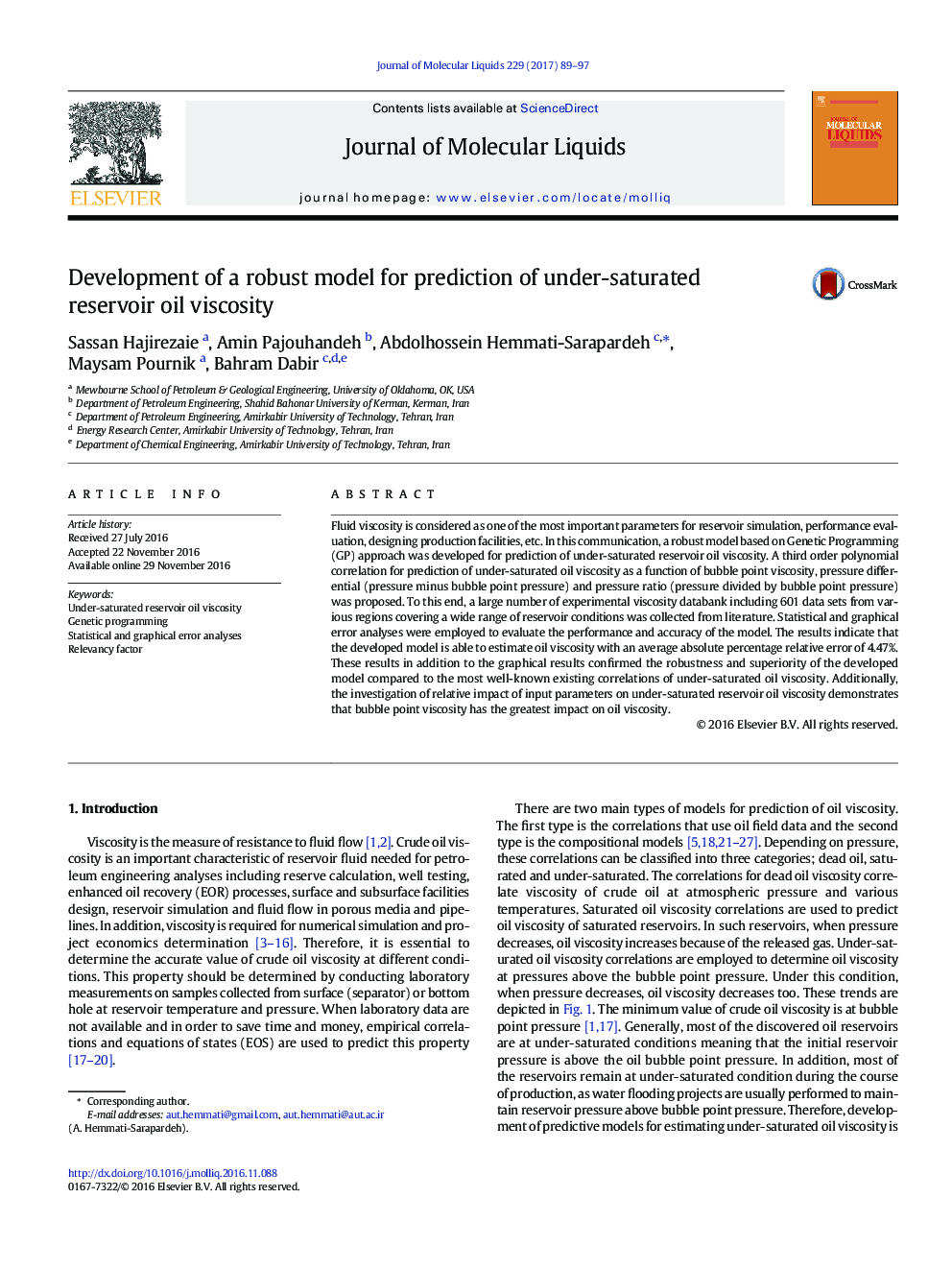| Article ID | Journal | Published Year | Pages | File Type |
|---|---|---|---|---|
| 5409127 | Journal of Molecular Liquids | 2017 | 9 Pages |
Abstract
Fluid viscosity is considered as one of the most important parameters for reservoir simulation, performance evaluation, designing production facilities, etc. In this communication, a robust model based on Genetic Programming (GP) approach was developed for prediction of under-saturated reservoir oil viscosity. A third order polynomial correlation for prediction of under-saturated oil viscosity as a function of bubble point viscosity, pressure differential (pressure minus bubble point pressure) and pressure ratio (pressure divided by bubble point pressure) was proposed. To this end, a large number of experimental viscosity databank including 601 data sets from various regions covering a wide range of reservoir conditions was collected from literature. Statistical and graphical error analyses were employed to evaluate the performance and accuracy of the model. The results indicate that the developed model is able to estimate oil viscosity with an average absolute percentage relative error of 4.47%. These results in addition to the graphical results confirmed the robustness and superiority of the developed model compared to the most well-known existing correlations of under-saturated oil viscosity. Additionally, the investigation of relative impact of input parameters on under-saturated reservoir oil viscosity demonstrates that bubble point viscosity has the greatest impact on oil viscosity.
Keywords
Related Topics
Physical Sciences and Engineering
Chemistry
Physical and Theoretical Chemistry
Authors
Sassan Hajirezaie, Amin Pajouhandeh, Abdolhossein Hemmati-Sarapardeh, Maysam Pournik, Bahram Dabir,
